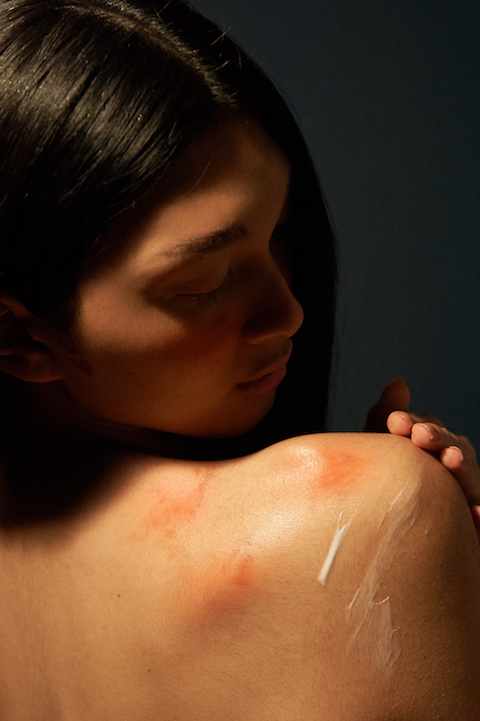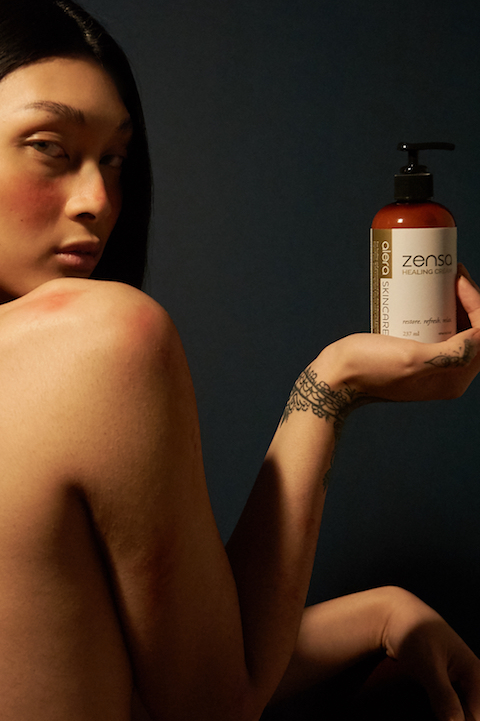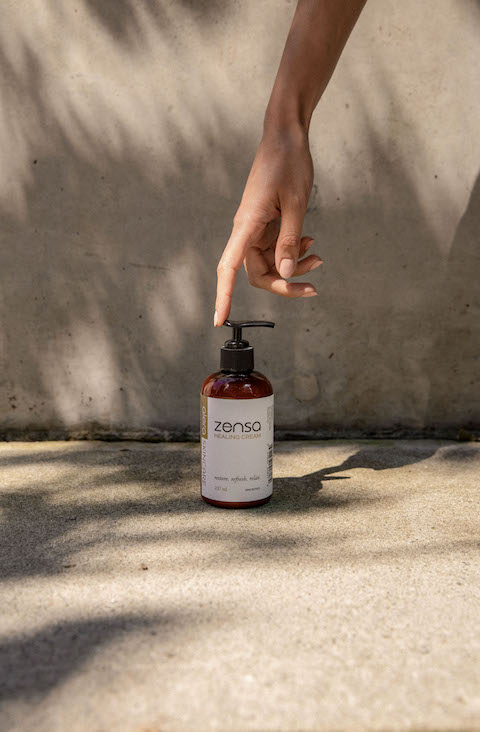8 Natural At-Home Remedies for Itchy Skin Relief
8 Natural At-Home Remedies for Itchy Skin Relief
The urge to scratch can seem impossible to resist. Itchiness is one of the most uncomfortable yet simplest conditions to treat and often is a mild, temporary symptom of certain environmental factors or lifestyle habits. Common causes include skin dryness, allergies, insect bites, wounds and scabs, nutritional deficiencies, stress or mood and hormone imbalances. If the itching persists, especially alongside any other chronic symptoms, consult a dermatologist or your general doctor to rule out conditions, such as eczema, infection or complications from liver, kidney or thyroid issues. Also, consider the medications that you’re currently taking and see whether this regimen lists itchiness as a possible side effect.
For mild cases, home remedies or natural over-the-counter solutions often are enough to alleviate and treat your symptoms. Read on to discover simple natural solutions to relieve your itchy skin.
Cool It Down
Itching creates inflammation. Applying a cold compress provides a temporary numbing effect to decrease swelling in the area. According to the American Academy of Dermatology Association, you should use an ice pack or a wet, cold cloth and it is recommended to use for 5-10 minutes at a time or until the itching sensation subsides.

Cooling agents are a simple solution for instant relief when managing irritation from bug bites, hives, sunburns or similar types of allergic reactions. Ice “therapy” treatments can also be used for more chronic conditions, such as eczema or psoriasis, for quick relief (especially at night). However, these conditions require more long-term dermatological care.
Keeping your moisturizer and lotion creams in the fridge has a similar effect and provides a soothing element to your daily skincare routine.
Consider Essential Oils
Several plant extracts are known for their anti-inflammatory and antimicrobial properties. Itchy skin can stem from an array of root causes. Essential oils naturally treat various itchy skin causes, are inherently moisturizing and have calming scents to help with stress relief, too.

Peppermint oil contains menthol, an essential oil known for its cooling effect that works to relieve itchy skin. Like the methods described above, this solution provides a numbing effect, which reduces inflammation and the accompanying burn sensation. Peppermint oil also has antiseptic, antibacterial and mild anti-fungal properties for instant pain relief while killing germs and infections for long-term healing. This essential oil is a great option to relieve immediate pain from skin burning or allergic reactions.
Tea tree oil is known to offer the most potent antibacterial, antifungal, antimicrobial and antiseptic properties among widely-available essential oils. It also contains high antioxidant levels to reduce inflammation while soothing and fighting skin infections from acne and eczema to skin wounds and athlete’s foot. In a 2011 research study, tea tree oil was found to be more effective for treating eczema than zinc oxide and clobetasone butyrate, a common prescription-only cream.
Chamomile and eucalyptus essential oils are also known for their cooling, anti-inflammatory and disinfection benefits.
Make sure to dilute any pure essential with a carrier oil before use.
Soak In Colloidal Oatmeal
Colloidal oatmeal, made from oat grain that is ground into a fine powder, has been a remedy used to treat dry and itchy skin for centuries. Oatmeal is known for its high antioxidant content and robust nutrition profile, which your skin also health benefits from when applied topically. Colloidal oatmeal contains avenanthramides, a compound that blocks the response of inflammatory cytokine proteins that helps soothe irritation from various skin conditions.
This salve is frequently used to treat eczema, either in a bath or as a leading ingredient in a lotion or cream. It can also help alleviate any itchiness from extremely dry and cracked skin, rashes, allergic skin reactions, sunburns and several more conditions.
Colloidal oatmeal’s anti-inflammatory compounds also provide anti-aging benefits by helping to preserve the skin’s elasticity and moisture. Creating an oat bath at home is simple and affordable. Take uncooked whole oats and finely blend them in a food processor until they resemble a powdery texture. Soak around a cup of the mixture into water, let it settle for 10-15 minutes and unwind.
Focus On Hydration
Dry or dehydrated skin is a common cause of itchiness. Cold temperatures, especially in the winter, or living in a low moisture climate can cause scaly or cracked skin. In these cases, regularly applying moisturizing lotions, creams or oils should alleviate your symptoms.

Eczema, on the other hand, often requires strategic hydration to relieve the irritation from this chronic condition. Moisturizing regularly with an oil-based product and medicated creams are essential. Some other useful ways to keep your skin hydrated include taking a warm shower (or oatmeal bath) before applying your lotion at night and incorporating wet wrap therapy, keeping a damp cloth over your moisturized skin overnight, into your regular routine.
Incorporate More Vitamin D
Gloomy winters could actually be the source of your skin issues– and it’s not for the reason you might expect. Dry, cracked and itchy skin can be a sign of a vitamin D deficiency. Especially if other skincare habits or topical creams aren’t effective against your painful skin, it is in your best interest to check in on your vitamin D levels.
For those who already have a diagnosed skin condition, such as eczema, psoriasis or ichthyosis (extremely dry skin), it is recommended that you incorporate vitamin d-rich foods into your diet regularly. Speak with your doctor about supplementing with a vitamin d topical cream or (an oral supplement), if you think this might be a suitable option.
Rethink Your Fat Intake
Eating a variety of nutritionally-dense foods is key for nourished skin. If you already incorporate a lot of hydrating fruits and vegetables into your regimen, consider whether you’re consuming enough fats. Ultra low-fat diets can deplete your skin of vital moisture needed to keep it hydrated, supple and smooth. Fat-soluble vitamins, such as vitamin D, also depend on your consuming healthy fats for their nutrients to be properly absorbed.
Incorporate healthy omega 3-rich options, including flax and chia seeds, seaweed and edamame and whole food sources with high vitamin E contents, such as almonds and walnuts. Vitamin E is a vital antioxidant, which will promote proper circulation and skin hydration.
Embrace Living Chemical Free
Evaluate your everyday products, if you’re struggling to find the source of your itchy skin. Many personal care and house cleaning products contain chemicals, strong fragrances and acids that could be unknowingly triggering contact dermatitis, an allergic reaction that causes redness, inflammation and itchy skin.

If you see rashes in areas where your clothing covers, try swapping out any dryer sheets for a fragrance-free alternative. It is best to also refrain from wearing wool if you start to get itchy in your warmer clothes, especially if you suffer from eczema.
Check whether your skincare products contain common irritants, such as ascorbic acid, alpha hydroxy acids including glycolic acid, malic acid, and lactic acid or paraban preservatives. Consider swapping out your perfume for a natural fragrance if you see irritation where you spray this scent, too.
Also, wear protective gloves when handling all-purpose cleaners and other home sanitation products
Invest In Healing Cream
Sometimes, homemade remedies aren’t enough and your skin needs some extra support. Several natural healing creams are available and limit your chances of further irritating your skin. Depending on your skin concerns, these products can range from a pre-packaged oatmeal soak to hemp, menthol or camphor-infused creams.

Zensa Healing Cream contains anti-inflammatory ingredients, including calendula and grapefruit essential oils, aloe barbadensis leaf extract, and green tea extract with skin-soothing ingredients, such as cucumber and shea butter. It is vegan, steroid-free and designed to help alleviate symptoms of painful conditions, from eczema to wound healing and general skin itchiness.
While natural remedies are a great option for many causes, they do not replace the need for professional medical assistance in urgent or persistent circumstances. Please consult your doctor if you’re experiencing severe or chronic symptoms.
Ultimately, managing itchy skin is a highly personal journey and it might require several rounds of experimentation with trial and error to find your triggers and the most effective solutions.
